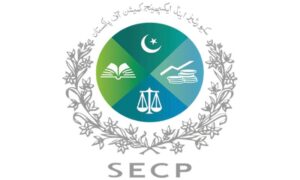Introduction:
Company registration is an essential step for establishing a legal business entity in Pakistan. It provides various benefits, including legal protection, credibility, and access to financial services. This article aims to provide a comprehensive overview of the documentation requirements and procedures for company registration in Pakistan. We will explore the necessary documents, their definitions, provide examples, and analyze relevant case studies. By understanding these requirements, aspiring entrepreneurs can navigate the registration process efficiently.
Definitions:
Memorandum of Association (MoA): The MoA defines the company’s constitution and key details, such as the company’s name, registered office address, objectives, share capital, and liability of members. It serves as the foundation of the company’s legal existence.
Articles of Association (AoA): The AoA outlines the rules and regulations governing the internal management and operation of the company. It covers matters such as shareholders’ rights, board structure, decision-making procedures, and dividend distribution.
Form SECP-1: This form is the application for availability of company name. It includes proposed company names ranked in order of preference and the desired business structure (private limited, public limited, etc.).
Form SECP-2: Form SECP-2 is the application for company incorporation. It contains information about the company’s directors, shareholders, registered office address, and share capital structure.
National Tax Number (NTN): NTN is a unique identification number issued by the Federal Board of Revenue (FBR) for taxation purposes. It is required for conducting business and filing tax returns.
Digital Signature Certificate (DSC): A DSC is an electronic form of identification used for secure online transactions, including filing documents with the Securities and Exchange Commission of Pakistan (SECP).
Examples:
To illustrate the documentation requirements, let’s consider the hypothetical case of XYZ Pvt. Ltd., a software development company registering in Pakistan.
Memorandum of Association (MoA): XYZ Pvt. Ltd.’s MoA would include its name, registered office address, objective (e.g., software development, IT consulting), authorized share capital, and liability of members.
Articles of Association (AoA): The AoA of XYZ Pvt. Ltd. would outline rules for the appointment and removal of directors, meeting procedures, dividend distribution, and other operational guidelines.
Form SECP-1: XYZ Pvt. Ltd. submits Form SECP-1 with proposed company names, such as “XYZ Software Solutions Pvt. Ltd.” and “XYZ Technologies Pvt. Ltd.,” ranked in order of preference.
Form SECP-2: This form would contain information about the directors, shareholders, registered office address, and details of share capital distribution among shareholders.
National Tax Number (NTN): XYZ Pvt. Ltd. would obtain an NTN from the FBR to fulfill tax obligations.
Digital Signature Certificate (DSC): The company’s directors would acquire DSCs to sign and submit digital documents to the SECP.
Case Studies:
Case Study 1: ABC Manufacturing Pvt. Ltd.
ABC Manufacturing Pvt. Ltd., a textile company, faced delays in registration due to incomplete documentation. They had to revise their MoA and AoA multiple times, causing unnecessary complications. By learning from their experience, aspiring entrepreneurs should ensure all documentation is complete and accurate before submission.
Case Study 2: DEF Pharmaceuticals (Pvt.) Ltd.
DEF Pharmaceuticals (Pvt.) Ltd. successfully registered by engaging a professional consultant who assisted with document preparation and filing. This case demonstrates the importance of seeking professional guidance to streamline the registration process and avoid potential pitfalls.
Conclusion:
Registering a company in Pakistan requires careful attention to documentation and adherence to regulatory procedures. By understanding the necessary documentation requirements and procedures, aspiring entrepreneurs can navigate the company registration process more efficiently. The key documents include the Memorandum of Association (MoA), Articles of Association (AoA), Form SECP-1, Form SECP-2, National Tax Number (NTN), and Digital Signature Certificate (DSC). These documents provide the legal framework for the company’s existence, outline its objectives and operational guidelines, and facilitate compliance with tax and regulatory obligations.
Case studies such as ABC Manufacturing Pvt. Ltd. and DEF Pharmaceuticals (Pvt.) Ltd. highlight the importance of thorough and accurate documentation preparation, as well as the value of seeking professional assistance when needed. By learning from these examples, entrepreneurs can avoid unnecessary delays and complications during the registration process.
In conclusion, the process of company registration in Pakistan involves a comprehensive set of documentation requirements. Entrepreneurs must carefully prepare and submit the necessary documents, such as the MoA, AoA, and application forms, while ensuring compliance with taxation and digital signature requirements. By doing so, they can establish a legally recognized business entity and avail themselves of the benefits and opportunities offered by the Pakistani business environment



